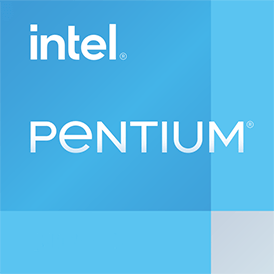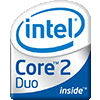
Intel Pentium B980 Benchmark, Test and specs
Last updated:
The Intel Pentium B980 has 2 cores with 2 threads and is based on the 3. gen of the Intel Pentium series. The processor uses a mainboard with the PGA 988 socket and was released in Q2/2012. The Intel Pentium B980 scores 447 points in the Geekbench 5 single-core benchmark. In the Geekbench 5 multi-core benchmark, the result is 889 points.

| Name: | Intel Pentium B980 |
|---|---|
| Family: | Intel Pentium (150) |
| CPU group: | Intel Pentium 900 (10) |
| Architecture: | Sandy Bridge U |
| Segment: | Mobile |
| Generation: | 3 |
| Predecessor: | -- |
| Successor: | -- |
CPU Cores and Base Frequency
The Intel Pentium B980 has 2 CPU cores and can calculate 2 threads in parallel. The clock frequency of the Intel Pentium B980 is 2.40 GHz. The number of CPU cores greatly affects the speed of the processor and is an important performance indicator.
| CPU Cores / Threads: | 2 / 2 |
|---|---|
| Core architecture: | normal |
| Cores: | 2x |
| Hyperthreading / SMT: | No |
|---|---|
| Overclocking: | No |
| Frequency: | 2.40 GHz |
| Turbo Frequency (1 Core): | -- |
| Turbo Frequency (2 Cores): | -- |
Internal Graphics
The Intel Pentium B980 has integrated graphics, called iGPU for short. Specifically, the Intel Pentium B980 uses the Intel HD Graphics (Sandy Bridge GT1), which has 48 texture shaders and 6 execution units. The iGPU uses the system's main memory as graphics memory and sits on the processor's die.
| GPU name: | Intel HD Graphics (Sandy Bridge GT1) |
|---|---|
| GPU frequency: | 0.65 GHz |
| GPU (Turbo): | 1.15 GHz |
| Compute units: | 6 |
| Shader: | 48 |
| Hardware Raytracing: | No |
| Release date: | Q2/2011 |
| Max. displays: | 2 |
|---|---|
| Generation: | 6 |
| Direct X: | 10.1 |
| Technology: | 32 nm |
| Max. GPU Memory: | 2 GB |
| Frame Generation: | No |
Hardware codec support
A photo or video codec that is accelerated in hardware can greatly accelerate the working speed of a processor and extend the battery life of notebooks or smartphones when playing videos.
| h265 / HEVC (8 bit): | No |
|---|---|
| h265 / HEVC (10 bit): | No |
| h264: | Decode / Encode |
| VP8: | No |
| VP9: | No |
| AV1: | No |
|---|---|
| AVC: | Decode / Encode |
| VC-1: | Decode |
| JPEG: | No |
Memory & PCIeThe processor can use up to 16 GB memory in 2 (Dual Channel) memory channels. The maximum memory bandwidth is 21.3 GB/s. The memory type as well as the amount of memory can greatly affect the speed of the system. |
|
| Memory type: | Memory bandwidth: |
|---|---|
| DDR3-1066 DDR3-1333 | 17.1 GB/s 21.3 GB/s |
| Max. Memory: | 16 GB |
| Memory channels: | 2 (Dual Channel) |
| ECC: | No |
| PCIe: | 2.0 x 16 |
| PCIe Bandwidth: | 8.0 GB/s |
Thermal ManagementThe thermal design power (TDP for short) of the processor is 35 W. The TDP specifies the necessary cooling solution that is required to cool the processor sufficiently. The TDP usually gives a rough idea of the actual power consumption of the CPU. |
|
|---|---|
| TDP (PL1 / PBP): | 35 W |
| TDP (PL2): | -- |
| TDP up: | -- |
| TDP down: | -- |
| Tjunction max.: | 85 °C |
Technical details
The Intel Pentium B980 is made in 32 nm. The smaller the manufacturing process of a CPU, the more modern and energy-efficient it is. Overall, the processor has 2.00 MB cache. A large cache can greatly speed up the processor's speed in some cases such as games.
| Technology: | 32 nm |
|---|---|
| Chip design: | Monolithic |
| Socket: | PGA 988 |
| L2-Cache: | -- |
| L3-Cache: | 2.00 MB |
| AES-NI: | Yes |
| Operating systems: | Windows 10, Linux |
| Virtualization: | VT-x, VT-x EPT, VT-d |
|---|---|
| Instruction set (ISA): | x86-64 (64 bit) |
| ISA extensions: | SSE4.1, SSE4.2 |
| Release date: | Q2/2012 |
| Release price: | -- |
| Part Number: | -- |
| Documents: | Technical data sheet |
Rate this processor
Benchmark results

The benchmark results for the Intel Pentium B980 have been carefully checked by us. We only publish benchmark results that have been created by us or that have been submitted by a visitor and then checked by a team member. All results are based on and fullfill our benchmark guidelines.
Geekbench 5, 64bit (Single-Core)
Geekbench 5 is a cross plattform benchmark that heavily uses the systems memory. A fast memory will push the result a lot. The single-core test only uses one CPU core, the amount of cores or hyperthreading ability doesn't count.

|
AMD A4-6300
2C 2T @ 3.90 GHz |
||

|
Intel Core i3-4030U
2C 4T @ 1.90 GHz |
||

|
Intel Celeron N4120
4C 4T @ 2.60 GHz |
||
|
|
Intel Pentium B980
2C 2T @ 2.40 GHz |
||

|
Intel Celeron 2950M
2C 2T @ 2.00 GHz |
||

|
Qualcomm Snapdragon 685 4G
8C 8T @ 2.80 GHz |
||

|
Intel Pentium D1517
4C 8T @ 2.20 GHz |
||
Geekbench 5, 64bit (Multi-Core)
Geekbench 5 is a cross plattform benchmark that heavily uses the systems memory. A fast memory will push the result a lot. The multi-core test involves all CPU cores and taks a big advantage of hyperthreading.

|
Intel Pentium Gold 4415Y
2C 4T @ 1.70 GHz |
||

|
Intel Celeron J4005
2C 2T @ 2.70 GHz |
||

|
MediaTek Helio G35
8C 8T @ 2.30 GHz |
||
|
|
Intel Pentium B980
2C 2T @ 2.40 GHz |
||

|
Intel Core i5-4300Y
2C 4T @ 1.60 GHz |
||

|
Intel Pentium 2020M
2C 2T @ 2.40 GHz |
||

|
Intel Core2 Duo E8600
2C 2T @ 3.33 GHz |
||
Geekbench 6 (Single-Core)
Geekbench 6 is a benchmark for modern computers, notebooks and smartphones. What is new is an optimized utilization of newer CPU architectures, e.g. based on the big.LITTLE concept and combining CPU cores of different sizes. The single-core benchmark only evaluates the performance of the fastest CPU core, the number of CPU cores in a processor is irrelevant here.

|
Intel Pentium 2030M
2C 2T @ 2.50 GHz |
||

|
Samsung Exynos 8895
8C 8T @ 2.30 GHz |
||

|
UNISOC T610
8C 8T @ 1.80 GHz |
||
|
|
Intel Pentium B980
2C 2T @ 2.40 GHz |
||

|
Intel Core i3-2120T
2C 4T @ 2.60 GHz |
||

|
UNISOC T700
8C 8T @ 1.80 GHz |
||

|
Samsung Exynos 9810
8C 8T @ 2.90 GHz |
||
Geekbench 6 (Multi-Core)
Geekbench 6 is a benchmark for modern computers, notebooks and smartphones. What is new is an optimized utilization of newer CPU architectures, e.g. based on the big.LITTLE concept and combining CPU cores of different sizes. The multi-core benchmark evaluates the performance of all of the processor's CPU cores. Virtual thread improvements such as AMD SMT or Intel's Hyper-Threading have a positive impact on the benchmark result.

|
Intel Celeron J4025
2C 2T @ 2.90 GHz |
||

|
Intel Celeron N4020
2C 2T @ 2.70 GHz |
||

|
Intel Core i5-2537M
2C 4T @ 1.40 GHz |
||
|
|
Intel Pentium B980
2C 2T @ 2.40 GHz |
||

|
Intel Celeron G1610T
2C 2T @ 2.30 GHz |
||

|
Intel Atom C3508
4C 4T @ 1.60 GHz |
||

|
Intel Pentium B970
2C 2T @ 2.30 GHz |
||
iGPU - FP32 Performance (Single-precision GFLOPS)
The theoretical computing performance of the internal graphics unit of the processor with simple accuracy (32 bit) in GFLOPS. GFLOPS indicates how many billion floating point operations the iGPU can perform per second.

|
Intel Core i5-3570
Intel HD Graphics 2500 @ 1.15 GHz |
||

|
Intel Core i5-3570S
Intel HD Graphics 2500 @ 1.15 GHz |
||

|
Intel Pentium B970
Intel HD Graphics (Sandy Bridge GT1) @ 1.15 GHz |
||
|
|
Intel Pentium B980
Intel HD Graphics (Sandy Bridge GT1) @ 1.15 GHz |
||

|
MediaTek Helio X23
ARM Mali-T880 MP4 @ 0.78 GHz |
||

|
MediaTek Helio X20
ARM Mali-T880 MP4 @ 0.78 GHz |
||

|
Intel Atom x6214RE
Intel UHD Graphics 10th Gen (16 EU) @ 0.40 GHz |
||
Estimated results for PassMark CPU Mark
Some of the CPUs listed below have been benchmarked by CPU-monkey. However the majority of CPUs have not been tested and the results have been estimated by a CPU-monkey’s secret proprietary formula. As such they do not accurately reflect the actual Passmark CPU mark values and are not endorsed by PassMark Software Pty Ltd.

|
Intel Pentium E6600
2C 2T @ 3.06 GHz |
||

|
Intel Celeron N3350
2C 2T @ 2.40 GHz |
||

|
Intel Atom x6214RE
2C 2T @ 1.40 GHz |
||
|
|
Intel Pentium B980
2C 2T @ 2.40 GHz |
||

|
AMD Athlon II X2 210e
2C 2T @ 2.60 GHz |
||

|
Intel Celeron G530
2C 2T @ 2.40 GHz |
||

|
Intel Celeron 1005M
2C 2T @ 1.90 GHz |
||
CPU-Z Benchmark 17 (Multi-Core)
The CPU-Z benchmark measures a processor's performance by measuring the time it takes the system to complete all benchmark calculations. The faster the benchmark is completed, the higher the score.

|
Intel Pentium E5500
2C 2T @ 2.80 GHz |
||

|
AMD A6-6310
4C 4T @ 2.00 GHz |
||

|
Intel Celeron G530
2C 2T @ 2.40 GHz |
||
|
|
Intel Pentium B980
2C 2T @ 2.40 GHz |
||

|
Intel Core i3-3217U
2C 4T @ 1.80 GHz |
||

|
Intel Pentium E5400
2C 2T @ 2.70 GHz |
||

|
Intel Core2 Duo E8200
2C 2T @ 2.66 GHz |
||
Benchmarks

Geekbench 5 (SC)
2,488 entries
2,488 entries

Geekbench 5 (MC)
2,461 entries
2,461 entries

Geekbench 6 (SC)
1,755 entries
1,755 entries

Geekbench 6 (MC)
1,703 entries
1,703 entries

FP32 SP (iGPU)
2,042 entries
2,042 entries

PassMark CPU-Mark
2,392 entries
2,392 entries

CPU-Z Benchmark 17 (MC)
733 entries
733 entries
Popular comparisons
back to index






